It’s no secret that neem oil has many health benefits, and people all over the world are turning to it as a viable solution for pest control. After all, it’s an organic way to protect your vegetables from pests – but what happens when the vegetables have neem oil on them? How can you make sure that you are washing off all traces of the neem oil so you can enjoy your products safely? Today, you will be discussing the essential steps for removing neem oil from vegetables properly.
Is Neem Oil Safe For a Human to Eat?
The short answer is that while neem oil is generally safe for humans to consume, it’s best to consult a medical professional if you’re considering using neem oil for any sort of internal or topical treatment. Neem oil has been used medicinally in India and other countries for thousands of years and is considered relatively safe when taken in small doses. However, high doses can cause severe side effects like nausea, vomiting, diarrhea, dizziness, headache, and low blood sugar levels. Additionally, the safety of long-term use of neem oil has not yet been established. Therefore, pregnant women should avoid taking large amounts of neem oil as it may cause harm to the unborn baby.
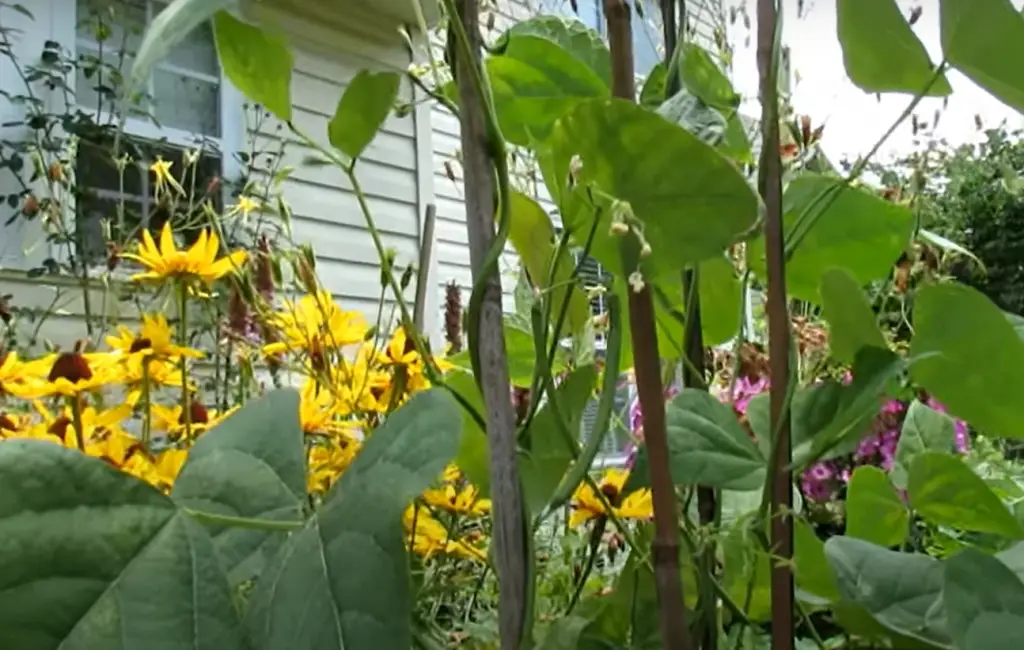
Neem oil can be safely consumed in small amounts. However, it is important to consult a medical professional before using neem oil for any type of internal or topical treatment as the safety of long-term use has not yet been established. Additionally, pregnant women should avoid taking large amounts of neem oil as it may cause harm to the unborn baby.
It’s also important to note that undiluted neem oil should never be applied topically or ingested as it can cause serious skin irritation and other health issues. Be sure to follow the instructions on the product label when using neem oil and always do a patch test before applying it directly onto your skin. By doing so, you can help ensure that you’re getting the most out of this natural remedy without putting your health at risk [1].
How to use neem oil on vegetables carefully?
Neem oil can have many beneficial effects on vegetables, from boosting growth and preventing pests to making them more nutritious. However, it is important to use neem oil carefully and correctly to maximize its effectiveness and avoid any negative side effects. Here are a few tips for using neem oil safely and effectively on vegetables:
- Dilute it properly: Before applying neem oil to your vegetables, be sure to dilute it in water at a ratio of one teaspoon of neem oil per gallon of water. Don’t use too much or too little – this will prevent damage or burning of the plants.
- Look for organic products: When shopping for neem oil make sure you look for products that are organic and certified safe for use on vegetables.
- Use it sparingly: While neem oil can be beneficial to vegetables, it is not necessary to use it every day or even every week. A few times a month should be sufficient enough to reap the benefits of neem oil without overdoing it.
- Test a small area first: Before applying neem oil to your entire vegetable garden, test a small area first to make sure the plants can tolerate it.
- Take precautions when using: Neem oil can irritate skin and eyes so make sure you wear protective clothing such as gloves and goggles before handling the solution. Also, keep pets and children away from areas where you have used the product.
Follow these tips to use neem oil safely and effectively on your vegetables. With proper application, you can see the benefits of this natural insecticide without harming your plants [2].
How Do You Wash Neem Oil Off Vegetables? Your Simple Guide
Fill a Bowl with Soapy Water
The first step in washing off neem oil from vegetables is to fill a bowl with warm soapy water. Make sure that the soap you are using is safe and non-toxic for food use, as some detergents may be harmful if ingested.
Submerge Vegetables in Vinegar Solution
Another way to remove neem oil from vegetables is to submerge them in a vinegar solution.
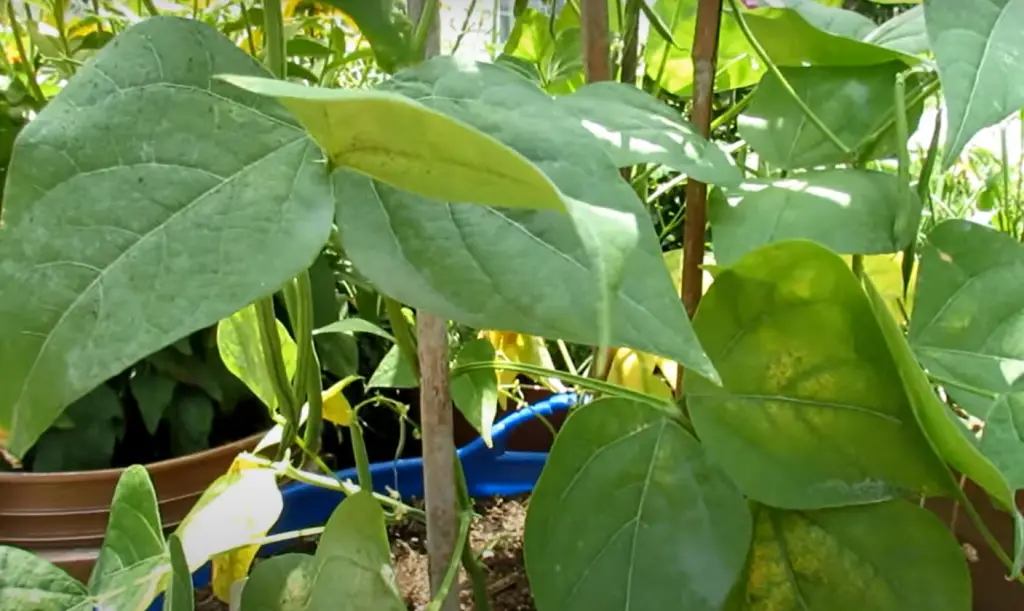
To do this, mix one part white vinegar with four parts water and stir until the mixture is thoroughly combined. Soak the vegetables for 10 minutes before rinsing them off with clean water. The acidity of the vinegar will help break down any residual oil on the surface of the vegetables for easier removal.
Scrub Gently with a Soft Brush
If the above methods do not work, you can gently scrub away any remaining oil using a soft brush.
Scrub the vegetables in gentle circular motions until all traces of neem oil have been removed.Rinse Thoroughly
No matter which method you choose to remove neem oil from your vegetables, it is important to always rinse them thoroughly before eating or cooking with them. This will help ensure that all traces of chemical residue are washed away and no harm comes to you or your family when consuming the product.
Let Air Dry
Let the vegetable air dry before eating or cooking with them. This will help to ensure that all traces of neem oil have been completely removed and no contaminants remain on your produce.
Store for Short-Term Use
If you are not planning to eat or cook with the vegetables right away, it is important to store them properly in order for them to stay fresh. Make sure that they are sealed in an airtight container and stored in a cool, dry place away from direct sunlight. This will help keep the vegetables safe for short-term use until you are ready to consume or cook with them.
Freeze for Long-Term Storage
For long-term storage, you can freeze the vegetables in an airtight bag or container. This will help preserve their freshness and make sure no neem oil is transferred onto other food items in your freezer. Be sure to label the bag or container with the date that they were frozen so that you know when it is safe to consume them [3].
Is Neem Oil Safe for Vegetables?
Yes, neem oil is safe for use on vegetables. Neem oil has been used as an organic pesticide for centuries and is relatively harmless to humans and animals. However, it can be toxic to some beneficial insects such as bees and butterflies, so it should not be sprayed directly on flowering plants.
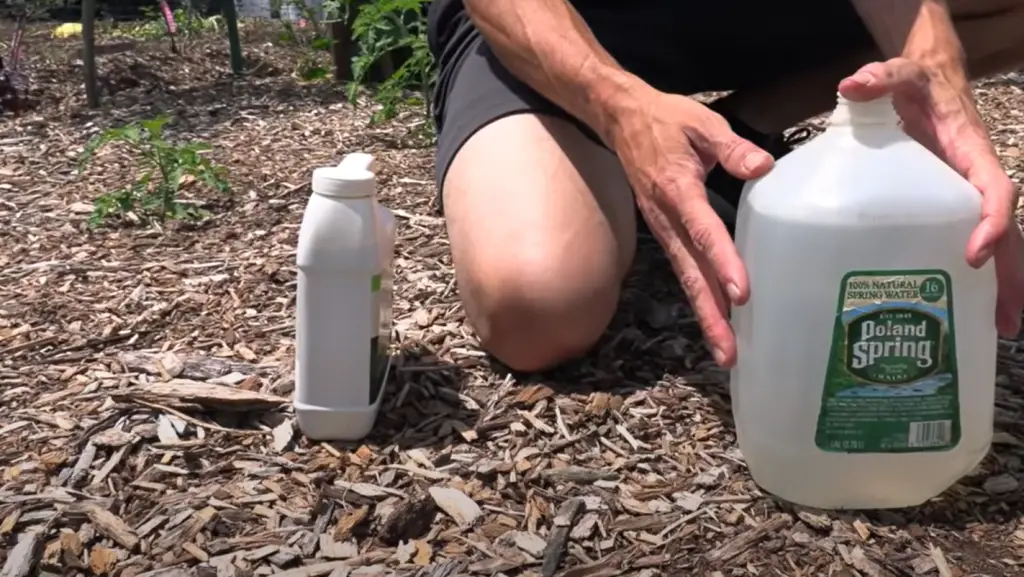
When using neem oil on vegetables, always read the instructions carefully and follow them closely. As with any pesticide or insecticide, make sure you keep children and pets away from treated areas until the product has had enough time to dry completely. Additionally, wear protective clothing when applying neem oil to your garden or lawn. When used properly, neem oil can be a great tool for organic gardening enthusiasts!
Other effective alternatives wash neem oil off vegetables
Soaking in salt water
Soaking in salt water is another effective method of removing neem oil from vegetables. Simply dissolve 1 tablespoon of regular table salt into a cup of warm water and then submerge the vegetable in it for at least 15 minutes. Afterward, rinse the vegetable off with cold water to remove any remaining residue. This method is especially useful for removing large amounts of oil or if you’ve applied too much neem oil to the plant. Saltwater can also be used as an effective fungicide, making it doubly beneficial when used on vegetables that may have been affected by fungal disease.
Soaking in baking soda solution
Baking soda has long been used as a natural cleaning agent and is an effective way to remove neem oil from vegetables. To make the solution, mix 3 tablespoons of baking soda into 1 cup of warm water and then submerge your vegetable in it for 15 minutes. Afterward, rinse off the vegetable with cold water to remove any remaining residue. Baking soda is especially useful for removing larger amounts of oil or if you’ve applied too much neem oil to the plant.
Brushing and scrubbing
Brushing and scrubbing are effective methods of removing neem oil from vegetables. Simply use a soft brush or cloth to gently scrub the vegetable, making sure to cover every inch. This method is especially useful for vegetables with thick skin such as squash or eggplant. After you’ve finished brushing, rinse the vegetable off with cold water to remove any remaining residue.
Vinegar solution
Vinegar is an effective solution for removing neem oil from vegetables. To make the solution, mix 1 cup of white vinegar into 4 cups of warm water and then submerge your vegetable in it for 15 minutes. Afterward, rinse off the vegetable with cold water to remove any remaining residue. Vinegar can be used on any type of vegetable and is especially useful for removing larger amounts of oil or if you’ve applied too much neem oil to the plant.
How to maintain vegetables in spring?
Maintaining vegetables in spring is a great way to make sure your garden produces a bountiful harvest throughout the season. Here are some tips for maintaining vegetable gardens in spring:
- Start planting as soon as the soil warms up. Planting too early can be damaging to your plants, so wait until the last frost date before starting to sow your seeds or set out transplants.
- Mulch around plants after planting. Mulching helps keep moisture in the soil and keeps weeds away from your vegetables. Choose an organic mulch such as straw, hay, or shredded leaves for best results.
- Water regularly during dry weather and give extra water during hot spells to help plants grow and stay healthy.
Feed your plants regularly with a balanced fertilizer. Organic fertilizers are best for vegetable gardens, as they help to build the soil’s fertility over time. - Keep an eye out for pests or diseases and treat them promptly if found. This will help keep your vegetables in good condition throughout the spring season.
- Thin out seedlings as needed to prevent overcrowding of plants, which can lead to weaker growth and disease problems later on in the season.
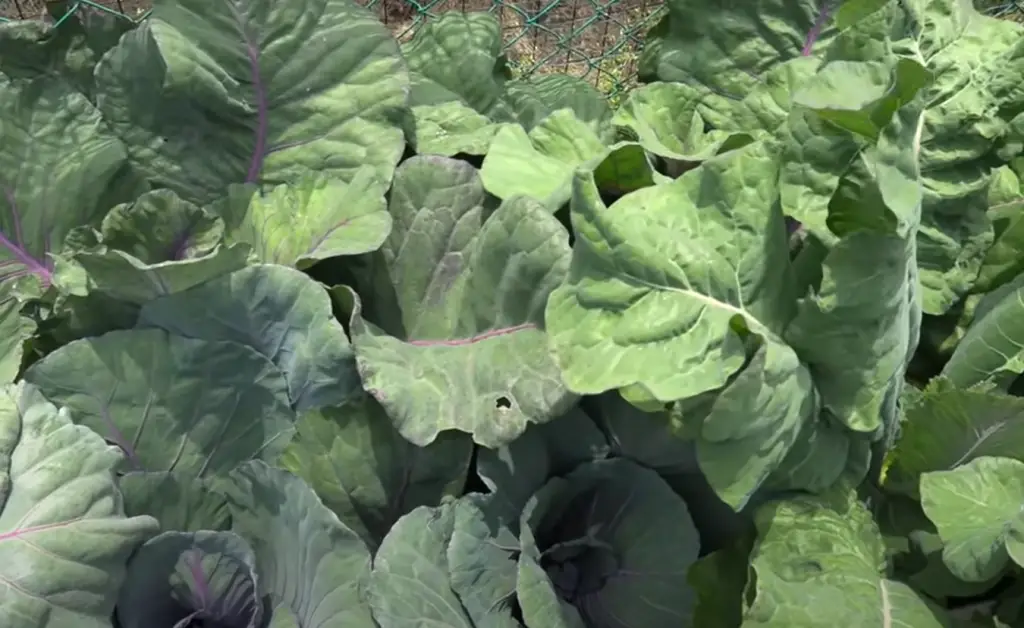
Following these tips will help you maintain your vegetable garden through the spring months so that you can enjoy a healthy harvest come summertime!
FAQ
Does neem oil need to be washed off?
No, neem oil is not necessary to wash off.
Neem oil may sometimes leave an unpleasant odor, so it is suggested to wash it off if the smell lingers too long. However, it should not be necessary to do so for the effectiveness of the product. Additionally, if the application was targeted at particular plant pests, then washing off neem oil may reduce its efficacy in controlling those insects. Make sure to read the label directions carefully before using any pesticide. If in doubt, consult your local extension office or other expert for advice on proper use.Can I eat vegetables after spraying with neem oil?
Yes, you can eat vegetables after spraying them with neem oil. Neem oil is a natural insect repellent and does not harm humans or animals. In fact, neem oil has been used in traditional medical treatments for thousands of years because of its healing properties. However, it may leave an unpleasant taste on the vegetables and fruits so it’s advised to wash them before consuming. Additionally, make sure that any residue from the neem oil spray has been washed off thoroughly. If in doubt, consult your local extension office or other expert for advice on proper use.
What kind of plants can be sprayed with neem oil?
Neem oil can be used on many different kinds of plants such as shrubs, trees, vegetables, flowers, and fruits. It is also an effective insect repellent on plants that are prone to infestations from certain pests. However, it should not be used on seedlings or young plants as the oil can damage their delicate leaves. Make sure to read the label directions carefully before using any pesticide on your plants. If in doubt, consult your local extension office or other expert for advice on proper use.
Does neem oil kill bees?
No, neem oil does not directly harm bees and other beneficial insects such as butterflies and ladybugs. In fact, it is often used as a natural alternative to chemical pesticides because of its effectiveness at controlling various plant pests without harming beneficial bugs. Make sure to read the label directions carefully before using any pesticide on your plants. If in doubt, consult your local extension office or other expert for advice on proper use.
Does neem oil damage plants?
No, when used properly, neem oil will not harm your plants. In fact, it is often used as a natural alternative to chemical pesticides because of its effectiveness at controlling various plant pests without damaging the plants themselves.
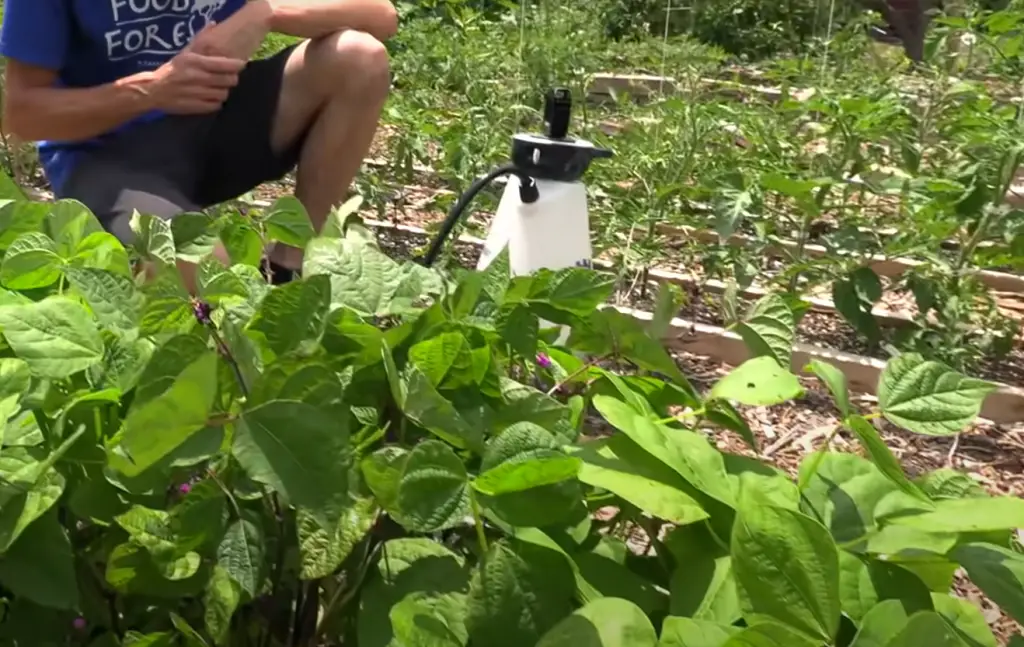
Make sure to read the label directions carefully before using any pesticide on your plants. If in doubt, consult your local extension office or other expert for advice on proper use.
Can you wash the oil off vegetables?
Yes, you can wash off neem oil from vegetables. Neem oil may sometimes leave an unpleasant odor, so it is suggested to wash it off if the smell lingers too long. However, make sure that any residue from the neem oil spray has been washed off thoroughly before consuming. Additionally, if the application was targeted at particular plant pests, then washing off neem oil may reduce its efficacy in controlling those insects. Make sure to read the label directions carefully before using any pesticide on your plants. If in doubt, consult your local extension office or other expert for advice on proper use.
Can you wipe neem oil on plants?
Yes, you can wipe neem oil on plants as it is often used as an organic pest control. Neem oil acts as a natural insect repellent that helps to control pests like aphids, mealybugs, and mites. However, make sure not to use too much of the oil on the plants as it may cause leaf burn or stunted growth. Additionally, make sure to read the label directions carefully before using any pesticide on your plants. If in doubt, consult your local extension office or other expert for advice on proper use.
Can you spray neem oil indoors?
Yes, you can spray neem oil indoors if necessary. Neem oil is a natural insect repellent and has been used traditionally to control indoor pests like mites, roaches, and ants. However, before using it indoors make sure to read the label directions carefully and ventilate the room thoroughly.
Can neem oil be used year-round?
Yes, neem oil can be used year-round as it does not lose its efficacy over time. It is a natural insect repellent that helps to control many common garden pests throughout all seasons of the year. However, make sure to read the label directions carefully before using any pesticide on your plants. If in doubt, consult your local extension office or other expert for advice on proper use.
Can you eat plants sprayed with neem oil?
Yes, you can eat plants that have been sprayed with neem oil. Neem oil is a natural insect repellent and does not leave any toxic residues on the plants. However, make sure to wash off any residue from the spray before consuming them to reduce any unpleasant odors. Additionally, make sure to read the label directions carefully before using any pesticide on your plants. If in doubt, consult your local extension office or other expert for advice on proper use.
What dissolves neem oil?
Neem oil can be dissolved in warm water or in an organic solvent such as isopropyl alcohol. However, it is important to note that neem oil will not dissolve completely but will form a suspension of droplets when added to the solution.
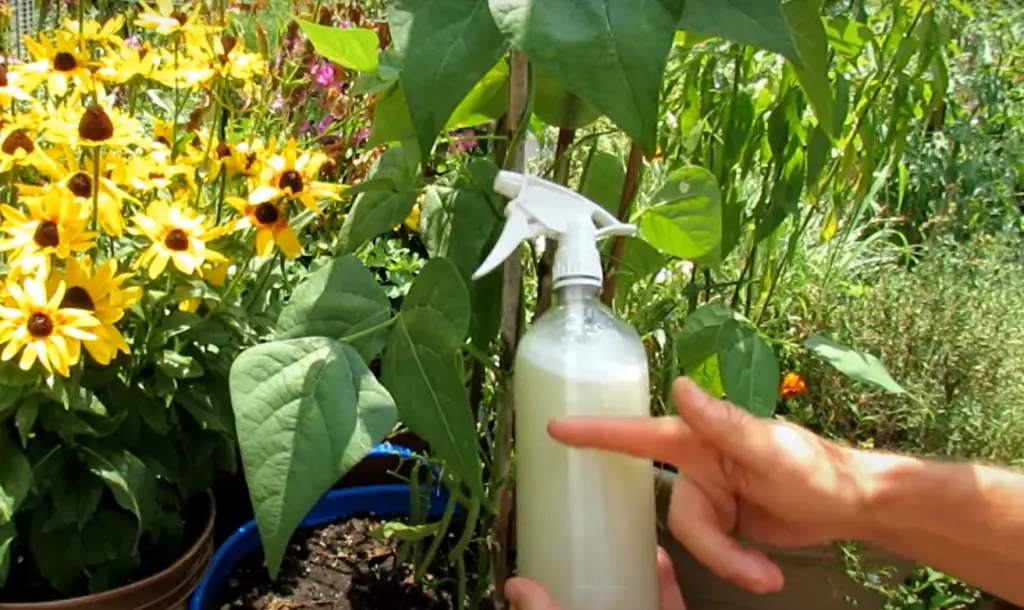
Additionally, make sure to read the label directions carefully before using any pesticide on your plants. If in doubt, consult your local extension office or other expert for advice on proper use.
Why do you need to read the label directions?
It is important to read the label directions before using any pesticide on your plants as they provide essential information about proper use and safety precautions. Most labels will include information such as recommended application rates, protective gear that should be worn, and warnings for handling or storing the product. Additionally, labels will often include first aid instructions in case of accidental exposure. Therefore, it is important to make sure to read the label directions carefully before using any pesticide on your plants. If in doubt, consult your local extension office or other expert for advice on proper use.
Useful Video: Neem oil for plants how to use
Conclusion
Washing neem oil off vegetables is an important step in ensuring that their nutritional value and flavor remain intact. It also helps to reduce the risk of potential food-borne illnesses. While washing vegetables with neem oil may seem like a daunting task, it’s quite simple if you follow the steps outlined in this article. With just a few ingredients, some patience, and a bit of elbow grease, you can enjoy all the benefits of using neem oil without sacrificing taste or nutrition. So, don’t be afraid to give it a try! Your health and your taste buds will thank you for it.
References:
- https://www.webmd.com/vitamins/ai/ingredientmono-577/neem
- https://www.masterclass.com/articles/neem-oil-for-plants
- https://backyardgardengeek.com/washing-neem-oil-off-vegetables/





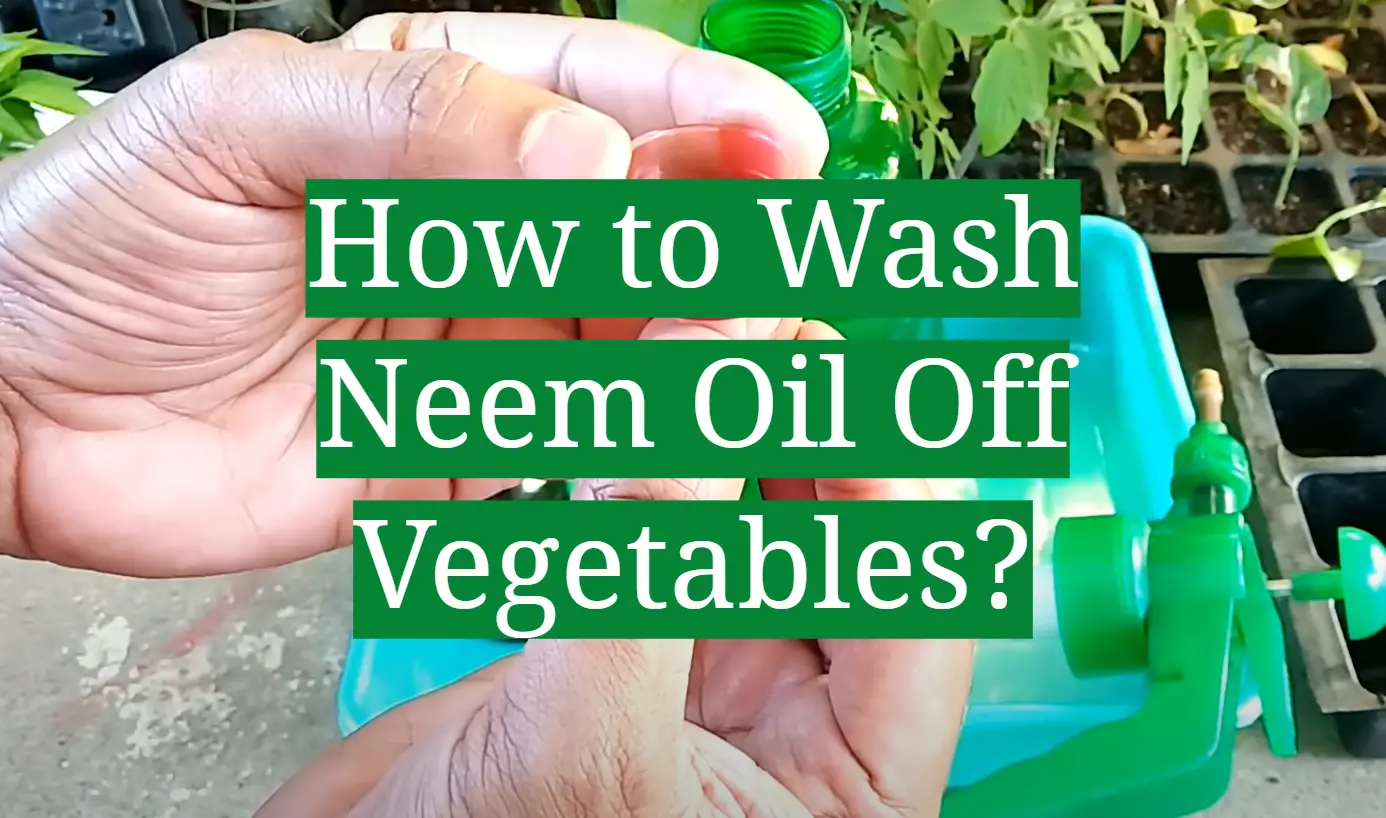
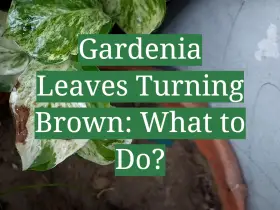

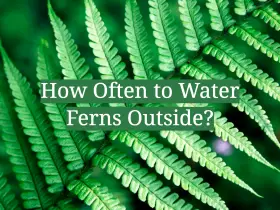
Leave a Reply
View Comments